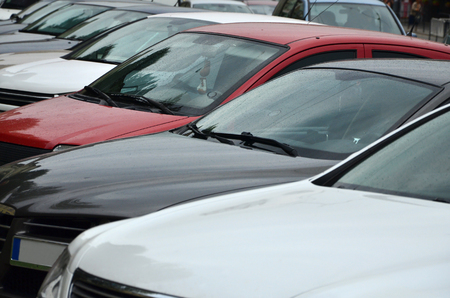1. Understanding Leased and Financed Cars
When getting a new car, you typically have two main options: leasing or financing. While both allow you to drive a new vehicle, they come with different ownership statuses and contractual obligations. Understanding these differences is crucial before making a decision.
Key Differences Between Leasing and Financing
The primary distinction between leasing and financing lies in ownership. With financing, you are working toward owning the vehicle, whereas leasing is more like renting for a set period. Here’s a breakdown of the main differences:
| Feature | Leasing | Financing |
|---|---|---|
| Ownership | You do not own the car; you return it at the end of the lease. | You own the car once the loan is fully paid off. |
| Monthly Payments | Generally lower than loan payments since youre only paying for depreciation. | Usually higher because youre paying toward full ownership. |
| Contract Length | Typically 2-4 years. | Usually 3-7 years until the loan is paid. |
| Restrictions | Mileage restrictions and potential fees for excessive wear and tear. | No mileage limits or penalties once the car is paid off. |
| Customization | Limited, as modifications may need to be removed before returning the car. | Fully customizable since you own the car. |
Contractual Obligations for Leasing and Financing
Both leasing and financing come with specific contractual obligations. In a lease, you must adhere to mileage limits and maintain the vehicle in good condition. Breaking the lease early may result in penalties. With financing, you are responsible for making loan payments in full. Missing payments could lead to repossession or negative impacts on your credit score.
Why This Matters for Collision Coverage
Regardless of whether you lease or finance, the lender or leasing company will likely require full coverage auto insurance, including collision coverage. Since you do not fully own the vehicle in either case (until a financed car is paid off), protecting it from damage is a requirement.
2. What Is Collision Coverage?
When you lease or finance a car, your lender or leasing company typically requires you to have collision coverage. But what exactly is collision coverage, and why is it essential?
Defining Collision Coverage
Collision coverage is a type of auto insurance that helps pay for repairs or replacement of your car if its damaged in an accident, regardless of who is at fault. This coverage applies to situations like hitting another vehicle, crashing into an object (such as a pole or guardrail), or rolling over.
What Does Collision Coverage Cover?
Collision coverage primarily focuses on damage to your own vehicle. Heres a breakdown of what it covers:
| Type of Incident | Does Collision Coverage Apply? |
|---|---|
| Accident with another vehicle | Yes |
| Crashing into a stationary object (e.g., pole, tree) | Yes |
| Rollover accident | Yes |
| Damage from potholes | Yes |
| Damage caused by another driver (not your fault) | Yes (but you may also file a claim with the other drivers insurance) |
| Hail, flood, fire, theft, or vandalism | No (These are covered by comprehensive insurance) |
Collision Coverage vs. Other Types of Auto Insurance
Its important to understand how collision coverage differs from other types of car insurance:
| Type of Coverage | What It Covers | Required for Leased/Financed Cars? |
|---|---|---|
| Collision Coverage | Repairs or replaces your car after an accident with another vehicle or object | Yes |
| Comprehensive Coverage | Non-collision incidents like theft, fire, weather damage, or vandalism | Yes |
| Liability Insurance | Injuries and property damage you cause to others in an accident | Yes (Legally required in most states) |
| Personal Injury Protection (PIP)/Medical Payments | Medical expenses for you and your passengers | Varies by state |
Why Collision Coverage Is a Must-Have for Leased or Financed Cars
Since you don’t fully own your car when leasing or financing, the lender or leasing company wants to protect their investment. If your car gets totaled or needs expensive repairs, they want assurance that they won’t be left covering the cost. That’s why most agreements require collision coverage.

3. Why Lenders and Leasing Companies Require Collision Coverage
When you lease or finance a car, the vehicle technically belongs to the lender or leasing company until youve paid it off. Because of this, financial institutions require collision coverage to protect their investment. This insurance ensures that if the car is damaged in an accident, repairs will be covered, keeping the vehicle in good condition.
Protecting the Lender’s Investment
Unlike a car you own outright, a leased or financed car isnt fully yours until youve completed your payments. Lenders and leasing companies insist on collision coverage because they need to safeguard their asset. Without this coverage, if the car is totaled or severely damaged, they could face financial losses.
What Happens Without Collision Coverage?
If you choose not to carry collision coverage on a leased or financed car—assuming your lender allows it—youre taking a big financial risk. Here’s a simple breakdown of what could happen:
| Scenario | With Collision Coverage | Without Collision Coverage |
|---|---|---|
| You get into an accident | Insurance pays for repairs | You pay for repairs out of pocket |
| Car is totaled | Insurance covers the car’s value | You still owe the lender but have no car |
| Leasing company/lender requirements | You meet their insurance policies | You may violate the contract |
How Collision Coverage Benefits You
Even though collision coverage is primarily required to protect the lender, it also helps you. If you get into an accident, you won’t have to pay thousands of dollars in repairs or worry about replacing the vehicle on your own. Instead, your insurance covers the damage, keeping you financially secure.
Understanding Your Insurance Terms
If youve leased or financed a car, review your contract to understand exactly what insurance is required. Most lenders will specify coverage limits and deductible amounts to ensure the car is adequately protected. Failing to maintain the required coverage can result in penalties or even having the lender purchase expensive insurance on your behalf.
Final Thoughts on Collision Coverage Requirements
While it might feel like an extra expense, collision coverage is essential for protecting both the lender’s investment and your financial stability. Ensuring you have the right coverage can save you from unexpected costs and provide peace of mind while driving.
4. Financial Risks of Skipping Collision Coverage
When leasing or financing a car, having collision coverage is crucial to protect yourself from significant financial risks. Without it, you could be responsible for paying out-of-pocket for costly repairs or even the entire vehicles remaining balance if its totaled. Let’s take a closer look at the potential financial liabilities you might face.
Out-of-Pocket Repair Costs
If you don’t have collision coverage, any damage to your leased or financed car caused by an accident will have to be paid directly by you. Depending on the severity of the damage, this can be a minor inconvenience or a major financial burden.
Estimated Repair Costs for Common Accident Damages
| Type of Damage | Estimated Repair Cost |
|---|---|
| Front Bumper Replacement | $500 – $1,500 |
| Scratches and Dents | $300 – $1,000 |
| Windshield Replacement | $200 – $600 |
| Major Frame Damage | $3,000 – $10,000 |
Remaining Loan or Lease Balance After a Total Loss
If your car is declared a total loss due to an accident, the lender or leasing company still expects you to pay off the remaining balance. Without collision coverage, you’ll need to cover this cost out of pocket, which could be thousands of dollars.
Example of Financial Liability
| Scenario | Cost Without Collision Coverage |
|---|---|
| Car Value at Time of Accident | $20,000 |
| Remaining Loan or Lease Balance | $18,000 |
| Insurance Payout Without Collision Coverage | $0 |
| Out-of-Pocket Expense | $18,000 |
Potential Repossession Consequences
If you arent able to cover the repair costs or remaining balance after an accident, the lender or leasing company may repossess the vehicle, and you could still owe money on the loan or lease. This could negatively impact your credit score and your ability to finance or lease another vehicle in the future.
How Collision Coverage Prevents These Financial Burdens
Collision coverage can help cover repair costs or reimburse the lender or leasing company in the case of a total loss. This means you won’t have to worry about large out-of-pocket expenses, and you’ll meet the insurance requirements set by your lender or lessor.
5. How Collision Coverage Benefits You
When leasing or financing a car, collision coverage is often required by your lender. However, its benefits go far beyond just meeting their requirements. Collision coverage serves as a crucial safeguard for your personal finances and ensures you have peace of mind in the event of an accident.
Protection Against High Out-of-Pocket Costs
Without collision coverage, youd be responsible for covering the repair or replacement costs of your vehicle after an accident, even if youre still making loan or lease payments. This can lead to significant financial strain. Consider the following comparison:
| Scenario | With Collision Coverage | Without Collision Coverage |
|---|---|---|
| Accident causes major vehicle damage | Insurance covers repair costs after deductible | You must pay full repair costs out of pocket |
| Your vehicle is totaled | Insurance reimburses you for the car’s value | You still owe on the car loan or lease, plus replacement costs |
Ensuring Transportation After an Accident
If youre in a collision and your car is undrivable, repairs or replacement could take weeks. With collision coverage, you can quickly get back on the road without significant financial hardship. Many policies also offer rental car coverage, allowing you to stay mobile while your vehicle is being repaired.
Financial Security Beyond Loan or Lease Agreements
While your lender requires collision coverage, maintaining it even after youve paid off your vehicle keeps you protected. It ensures that in the event of an accident, you won’t face a sudden financial burden trying to repair or replace your car.
Peace of Mind While Driving
Driving without collision coverage means that every trip comes with financial risk. Even if youre a cautious driver, accidents can happen due to other drivers’ mistakes or unavoidable circumstances. With collision insurance in place, you can drive with confidence, knowing youre covered no matter what happens.


